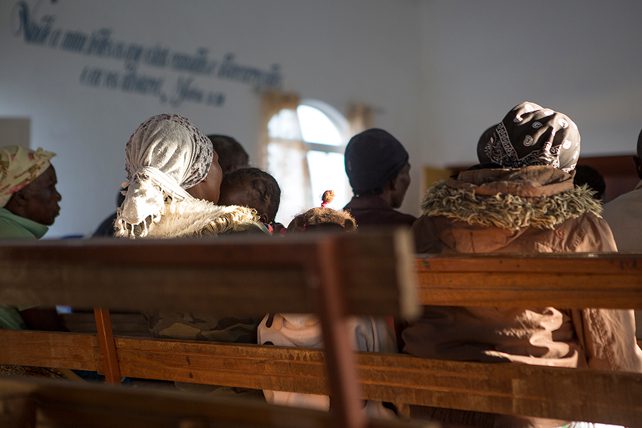2. African Pentecostals Don’t Wait for the Finances To Come To Plant Churches. They Plant and Trust God To Bring the Resources.
I often ask African leaders how much costs to plant a church in their country. I’ve found that more often than not, this isn’t an easy question to answer because church planting efforts aren’t typically dependent upon finances first coming in. Unlike in the West, where church planters typically raise a launch budget and then plant a church, African Pentecostals will often plant a church first, trusting the Lord to provide along the way.
This faith-rooted approach to provision is often off-putting to a lot of Western church planters (it is often seen as poor planning). But the reality is that this was the precise approach that shaped early American Pentecostal church planting as well. Early “holy rollers” (as they were often pejoratively called) were anything but flushed with cash but full of Spirit-filled passion and evangelistic fervor and did not wait for resources to come. African Pentecostals are living out that faith-filled enterprise now. We can benefit from African Pentecostals today, calling us back to the simplicity of faith-driven church planting.
3. African Pentecostals Plant Churches With the Explicit Expectation That Those Churches Will Plant Churches Themselves.
Baked into the missiology of church planting among many African Pentecostals is the understanding that all churches must be reproducing churches. An established church that is not reproducing itself with new church plants is not a fully-functioning church. But woven within that missiology is the understanding that if all healthy churches are reproducing churches, then every new church plant should be a reproducing church as well (in the West, we often refer to this as “church multiplication”). While in the West, we typically approach church multiplication as a necessary step once a church has reached a level of sustainability and maturity, African Pentecostals position their church plants to reproduce new churches in rapid succession.
This rapid expansion has challenged my own, more cautious, approach to church planting. But the regular drum beat of church planting work among African Pentecostal churches keeps the vision alive and the church continuously expanding into new frontiers.
4. African Pentecostals Don’t Launch a Service to Attract a Church Community, They Plant a Community That Holds Worship Services.
While not exclusively true, many church planters in the West will raise a budget, build a small core team, launch a service, and grow a community around that weekend service and the ministry offerings that orbit that service. But the Sunday service is the focal point. The primary biblical image for the church in this approach is that of ecclesia—referring to a gathering of people for a common purpose.
Characteristic of the more communal cultures in Africa, rather than planting a service that builds community, African Pentecostals plant a community that holds a Sunday service—but sometimes that Sunday service comes later, after time spent in community studying and dialoguing about the Bible (other WAGF fellowships—especially those planting in more resistant contexts—use this approach as well). The primary biblical image for this approach is not eccklesia but koinonia (that is, a community).
This should give us pause to reconsider the role of the Sunday service in our church planting work in the West. Should the Sunday service be what builds a church community, so that our services are planned and oriented around attracting new members of that community? Or should our focus be on building the community itself so that our Sunday services are our common worship focused on Christ?
5. African Pentecostals Place Church Planting at the Heart of Their Missiology.
One of the things I’ve appreciated most about working with African Pentecostals in their church planting strategies is how, for those who are most rapidly growing, church planting isn’t an add-on department to their denominational structure. It’s not a ministry offering. It is woven into the very DNA of why many African Pentecostals believe the church exists. Church planting is at the core of their missiology.
There is, of course, the tension to consider that the function of the church is to expand because it is pointing people to Christ, not to expand for the sake of its own expansion. The missionary task of the church is Jesus-shaped, not church-shaped, but the church is at the heart of the Jesus-shaped mission. So long as we keep Jesus as the anchor point, we would do well to consider how we too can allow church planting to permeate our whole missiology, rather than a singular additional component to how we do ministry.
6. African Pentecostals Don’t Shy Away From Spiritual Warfare and Embody the Power of Prayer—Not as a Spiritual Nicety, but as a Critical Part of Church Planting Strategy.
As someone who tends to default to being more cerebral in my spiritual walk if I’m not careful, I have been deeply challenged and convicted by my African Pentecostal sisters and brothers, who do not separate the concepts of spiritual warfare and the need for prayer from their church planting strategies. They don’t keep strategy in one side of their brain and the “spiritual stuff” in another side. They are a cohesive, integrated whole.

